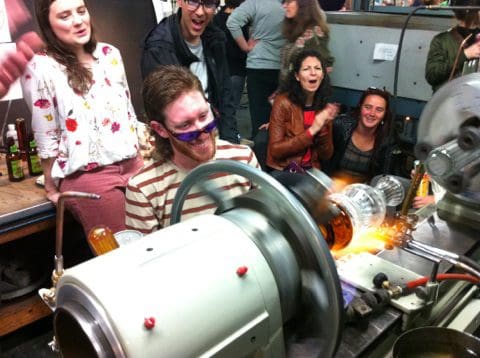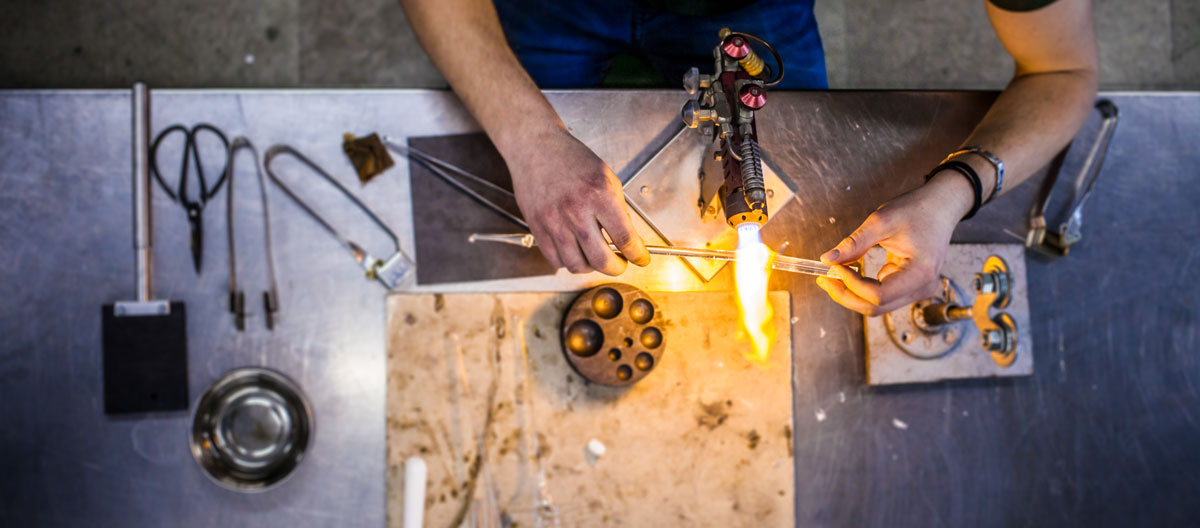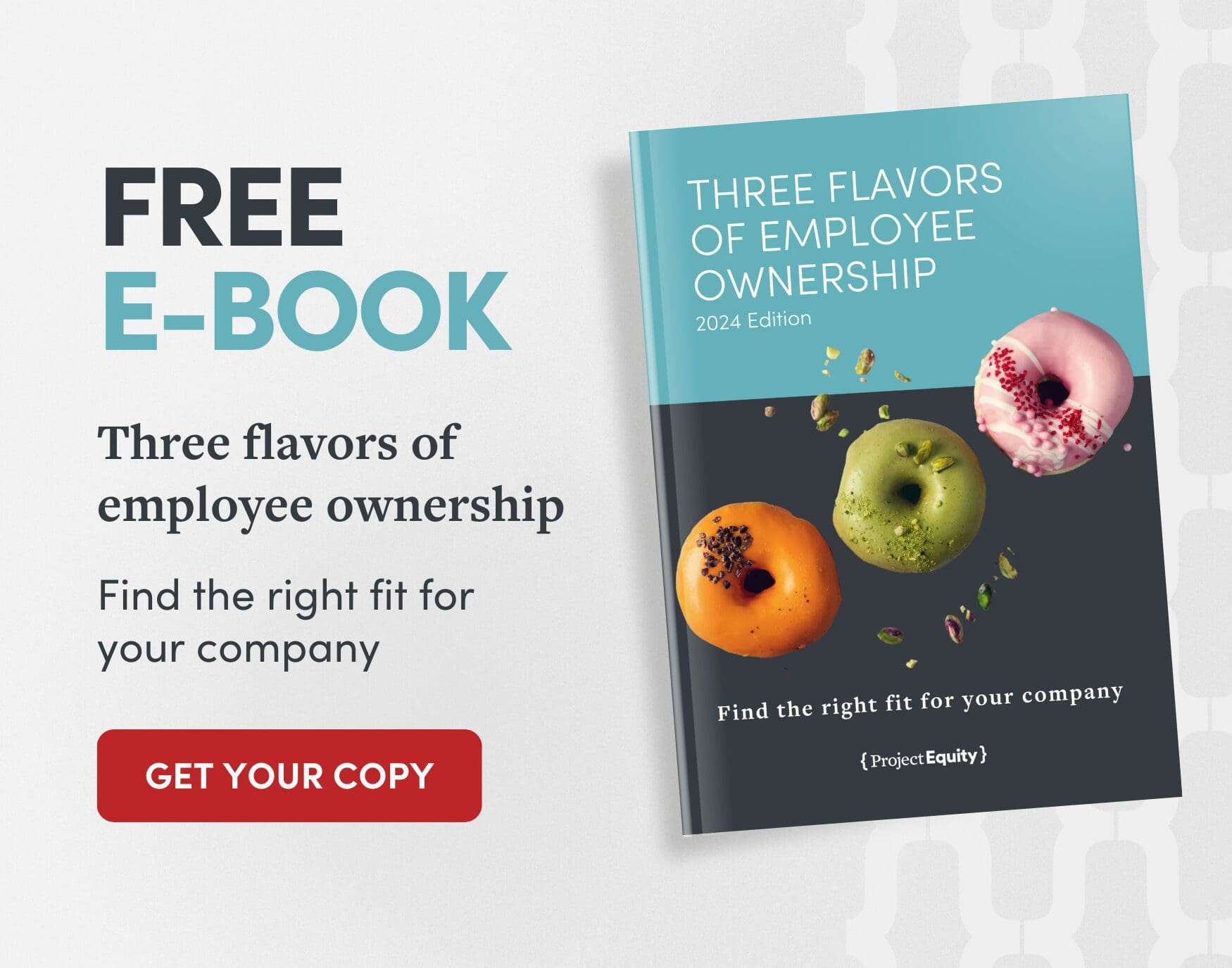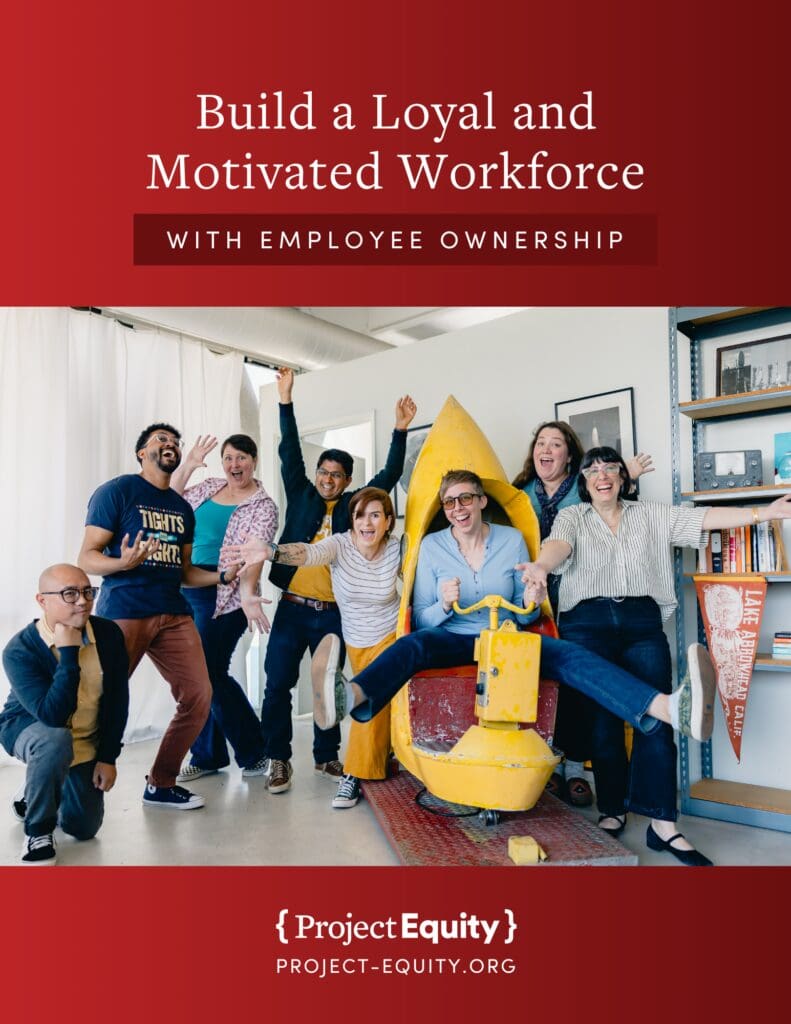Adams and Chittenden: Mo’s Story
- Berkeley, CA
Adams and Chittenden Scientific Glass, a twenty-five-year-old company in Berkeley, CA, is world renowned for manufacturing specialized laboratory glassware. In February 2017, co-founders Tom Adams and George Chittenden brought in Project Equity to assist with their journey to transition company ownership to their employees.
Moshe Schandelson has been blowing glass with Tom and George for the last four years and is preparing to become one of the new owners. We interviewed Mo in the summer of 2018.

Q: Now that Adams and Chittenden Scientific Glass has started the process of transitioning to Employee Ownership, how has the work changed for you?
Mo: I find myself shifting my by-the-hour mentality and thinking holistically about how this job relates to my livelihood. I take the workload more personally and seriously, and realize the difference I make for the business really makes a difference for me, too. I find myself not only pushing through the boring aspects of work but even volunteering for more of it because someone has to do it and get it done. If I show that I care this much, it will inspire someone else to step up, and I expect that from fellow owners.
Q: What is the scariest thing for you as you are starting the process of converting to employee ownership?
Mo: The finances are the scariest thing for me. We’re working with big numbers that, being used to living from paycheck to paycheck, I have not considered or worked with before. I’m comforted that the business is thriving, but keeping it thriving is daunting. We are all relatively young and this is a big step for us. We also realize it will be hard for the founders to let go of their responsibilities and we will all have to evolve in our new roles. However, we’re very optimistic that this will work out.
Q: What has been easy about the process that you thought would be difficult?
Mo: Voicing my opinion. Working with Project Equity has been a great experience. They make the conversion process simpler than it seems and help me make sure my voice is heard. A lot of the financial terminology is new but I feel comfortable being myself and asking the questions I need to in order to understand the process. Going through business planning and financial literacy classes with them has opened us all up to understanding the intricacies of how the business is run. They demystify bylaws and board structure and help us map how decisions are made. They are definitely shepherding a successful path forward for our coop. I also realize I don’t have to change myself to be an owner in this business; I can be a professional and still have fun.
Q: How do you see the business growing when you officially become an owner?
Mo: I see it continuing to thrive the way it is. We might find a larger facility and hire more people to work with us, but I don’t think we’ll change much. Although, it would be cool to become more engaged with the local glass blowing community. My friends and family are excited and happy for me; it would be nice to open our shop to the public more often and share our work with those who support us.
Q: How do you envision ownership affecting your future?
Mo: Hopefully, financially, but I also see it positively affecting our community. I think we’re lucky that Tom and George have already set up this thriving business. We live in a high-tech environment near enormous companies with thousands of employees. Many are our clients; without us they cannot do their work. We also work in a neighborhood that is being gentrified—there is a lot of industry right next to homes. Inevitably the industrial buildings are being torn down to create more condos and townhomes. We are members in the West Berkeley Artisans and Industrial Companies, an organization standing for the right of small businesses and artists to stay and thrive in this area. I think if we become a coop and show the neighborhood we can stay here after the founders retire, it will inspire other owners of manufacturing businesses near us to follow a similar succession plan.
Ownership story details
Transitioned
Not applicable
Employees
Not applicable
Industry
Type of EO
Topic
Not applicable



